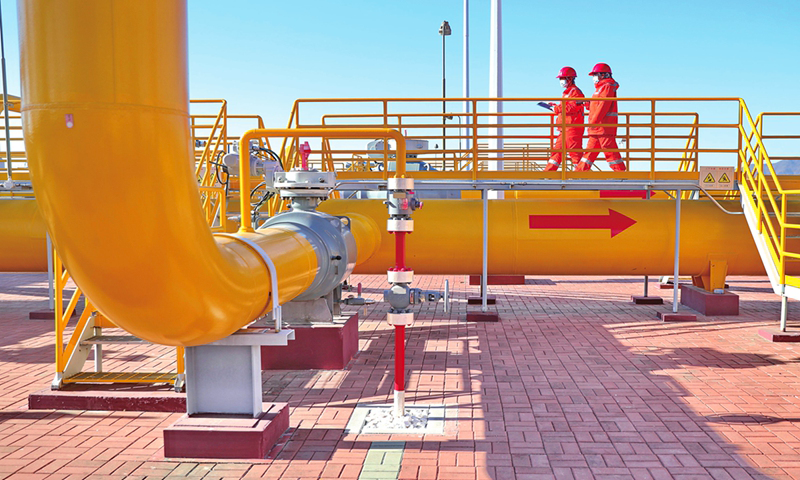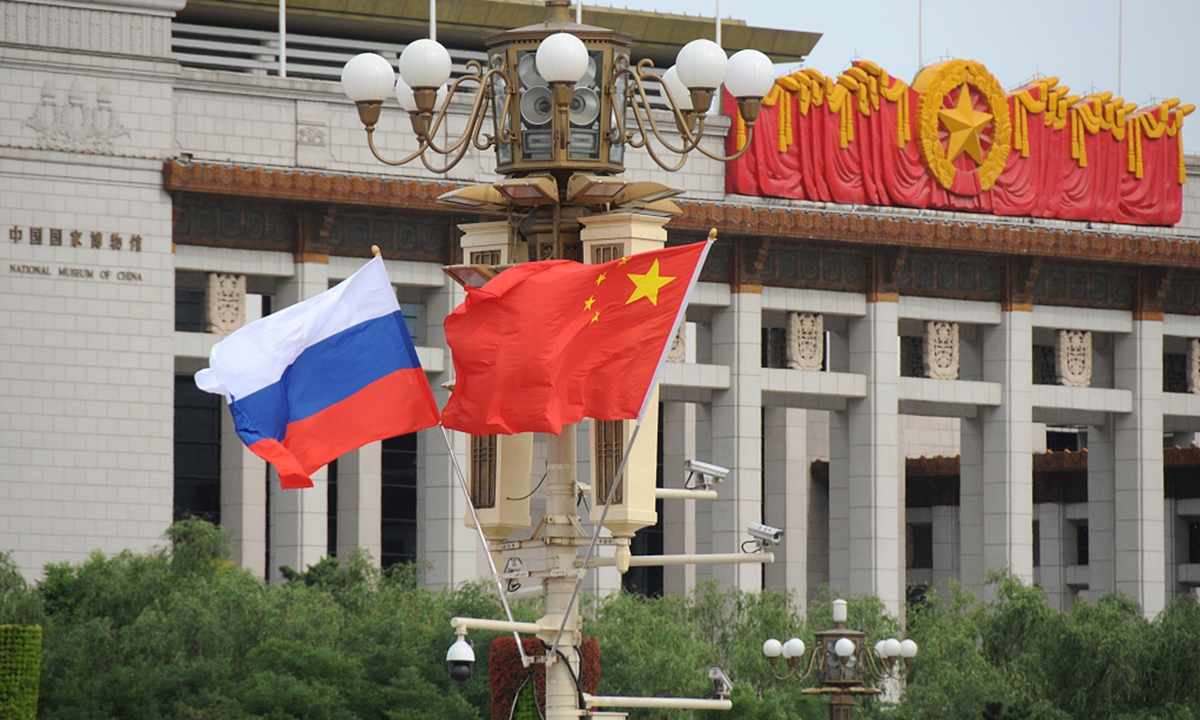
Staff members from PipeChina conduct a daily inspection of the China-Russia east-route natural gas pipeline in Qinhuangdao, North China's Hebei Province on November 1, 2022. Photo: VCG
The China-Russia east-route natural gas pipeline project has transported more than 50 billion cubic meters (bcm) of natural gas in the past four years of operation, PipeChina announced over the weekend. The rising volume of natural gas being sent to China attests to deepening bilateral energy cooperation, experts said on Sunday.
Experts said that Russia has shifted its focus of natural gas exports to the Chinese market since the outbreak of the Russia-Ukraine conflict, and the landmark seen in the east-route natural gas pipeline project has come amid mutual efforts to ramp up Russia's natural gas exports to China. This cooperation has significantly enhanced China's energy security with a reliable supply of reasonably priced gas from Russia, they noted.
From January 1 to December 2 this year, the pipeline carried more than 20 bcm of natural gas, a record, according to PipeChina. Starting from the original capacity of 5bcm, the pipeline's yearly transportation capacity has increased and is expected to climb further in 2024.
Song Kui, president of the Contemporary China-Russia Regional Economy Research Institute, told the Global Times on Sunday that as more Chinese cities shift in favor of greener natural gas and away from coal and oil amid their pursuits of carbon peak and neutrality goals, the demand in the Chinese market has seen a sharp rising curve.
Despite fast growth in trade in a variety of sectors such as agriculture and electromechanical products, China-Russia energy cooperation is set to remain the centerpiece of bilateral economic and trade cooperation in the coming years, Song said, noting that bilateral cooperation in natural gas will be the bright spot of bilateral energy cooperation.
Such trade also features local currency settlements in the yuan and the ruble, which greatly minimize foreign exchange settlement risks and reduce the trading costs of market participants.
Last month, Russian news outlet Sputnik News reported that Russian energy firm Gazprom had signed an agreement with China National Petroleum Corp and PipeChina on the design and construction of a pipeline section in the Russian Far East, which will be used to deliver Russian gas to China from the Russian city of Dalnerechensk to Hulin, Northeast China's Heilongjiang Province.
This year, Russia's energy exports to China have increased by 17 percent year-on-year, according to Russian newspaper Izvestia.
In an interview with the Global Times last week, Russian Ambassador to China Igor Morgulov noted that energy is the "locomotive" of Russia-China economic and trade cooperation, and this cooperation is not limited to raw material trade but also involves the joint implementation of large-scale industrial and infrastructure projects.
Song said that as the construction of the pipeline reaches Chinese cities in the Yangtze River Delta and eventually Shanghai, the demand for Russian gas will definitely increase further.
China-Russia energy cooperation is evolving to cover the whole industry chain, with Russian companies considering stakes in upstream exploration as well as the retail end such as operating gas station networks in China, experts said.



